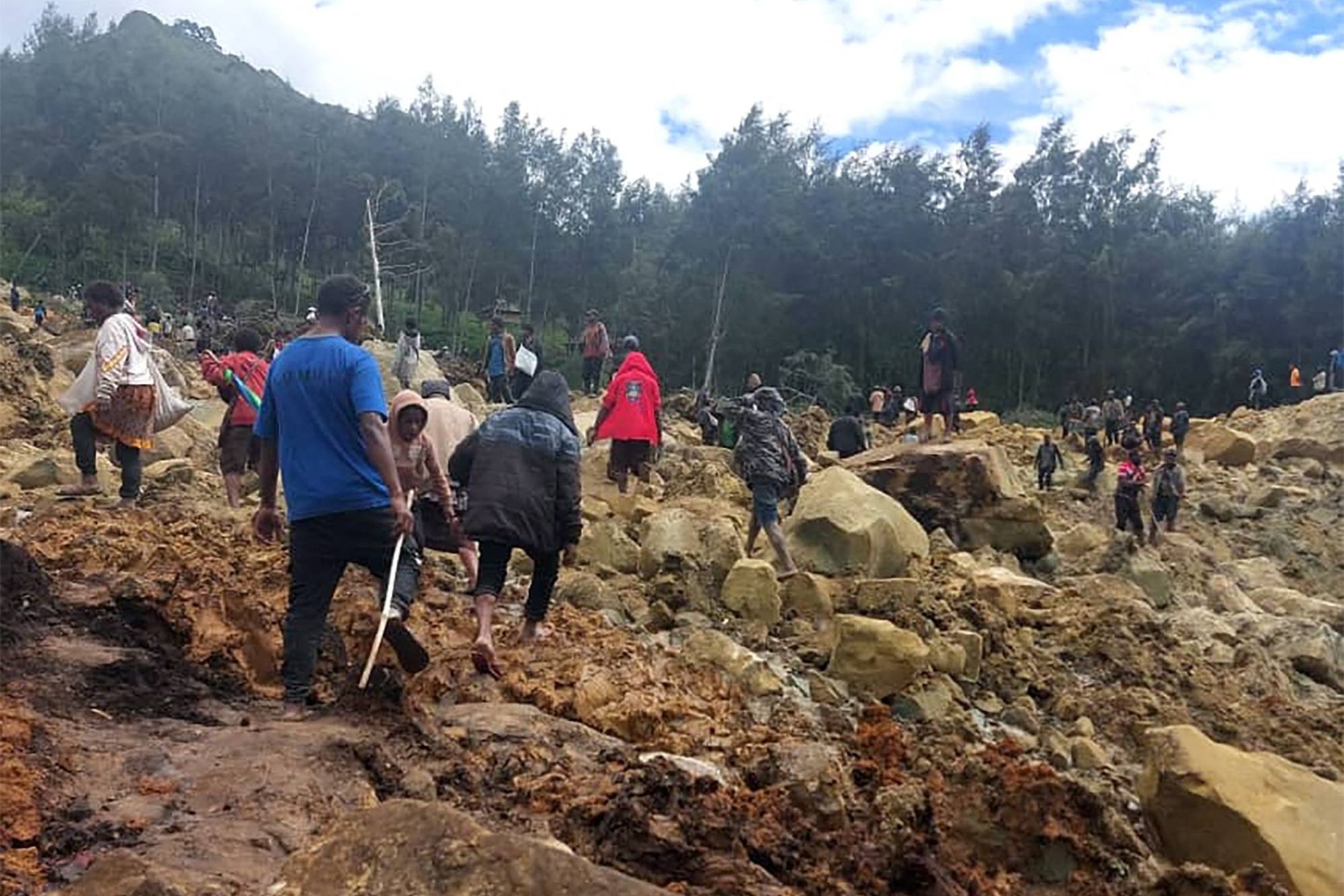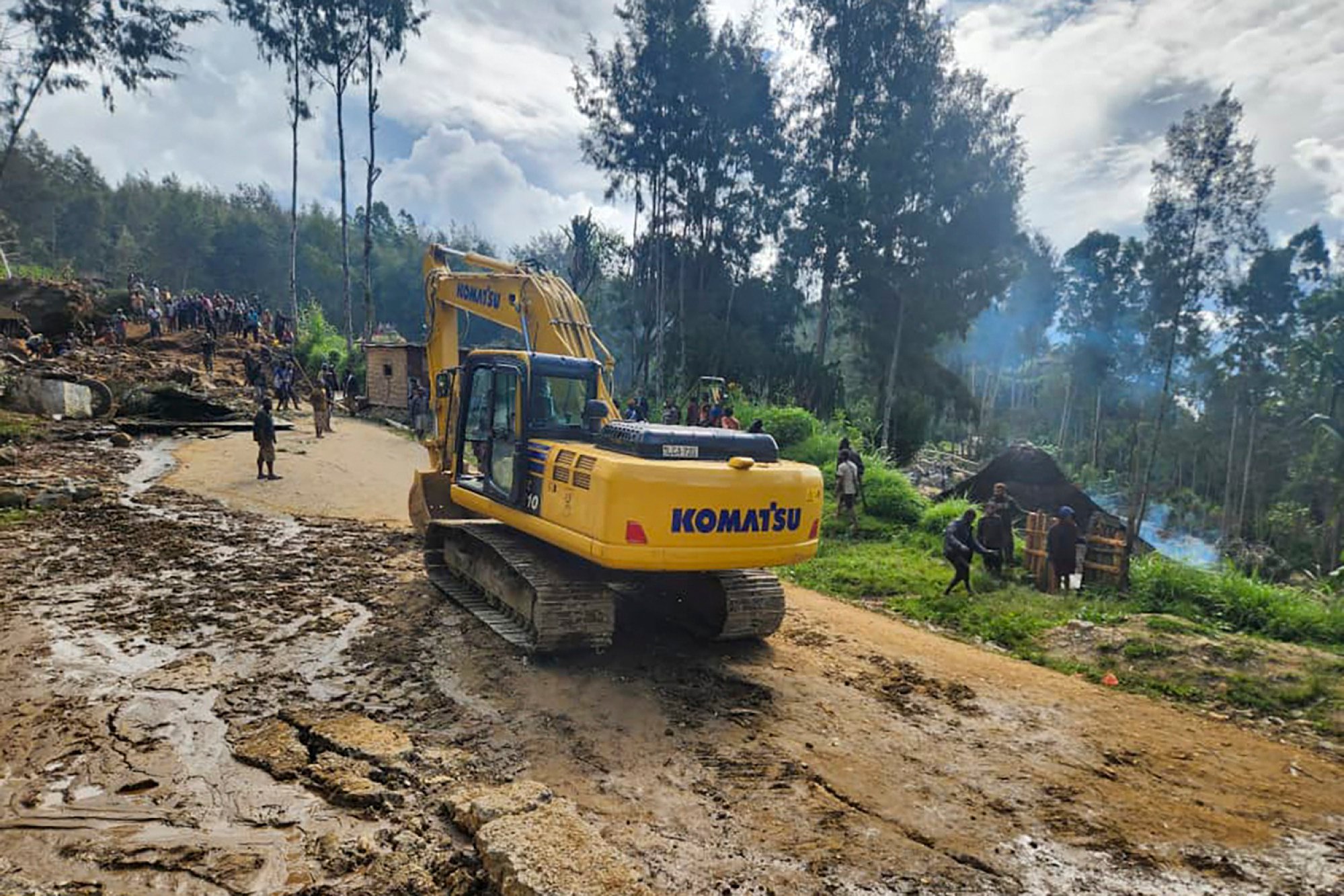
Papua New Guinea landslide kills more than 670, no hope of finding survivors: UN agency
- Local officials had initially put the death toll at 100 or more. Only five bodies and a leg of a sixth victim had been recovered so far
- Tonnes of unstable earth and clan violence have also threatened the rescue effort in Enga province
The International Organization for Migration on Sunday increased its estimate of the death toll from a massive landslide in Papua New Guinea to more than 670 as emergency responders and traumatised relatives gave up hope that any survivors will now be found.
Serhan Aktoprak, the chief of the UN migration agency’s mission in the South Pacific island nation, said the revised death toll was based on calculations by Yambali village and Enga provincial officials that more than 150 homes had been buried by Friday’s landslide. The previous estimate had been 60 homes.
“They are estimating that more than 670 people [are] under the soil at the moment,” Aktoprak said.
Local officials had initially put the death toll on Friday at 100 or more. Only five bodies and a leg of a sixth victim had been recovered by Sunday.
Relief crews moved survivors to safer ground on Sunday as tonnes of unstable earth and tribal warfare, which is rife in the Papua New Guinea Highlands, threatened the rescue effort.
Meanwhile, the national government is considering whether it needs to officially request more international support.
Crews have given up hope of finding survivors under earth and rubble 20 to 26 feet (6 to 8m) deep.
“People are coming to terms with this so there is a serious level of grieving and mourning,” Aktoprak said.
He said the new estimated death toll was “not solid” because it was based on the average size of the region’s families per household. He would not speculate on the possibility that the actual toll could be higher.
“It is difficult to say. We want to be quite realistic,” Aktoprak said. “We do not want to come up with any figures that would inflate the reality.”

Government authorities were establishing evacuation centres on safer ground on either side of the massive swathe of debris that covers an area the size of three to four football fields and has cut the main highway through the province.
Beside the blocked highway, convoys that have transported food, water and other essential supplies since Saturday to the devastated village 60km (35 miles) from the provincial capital, Wabag, have faced risks related to tribal fighting in Tambitanis village, about halfway along the route. Papua New Guinea soldiers were providing security for the convoys.
Eight locals were killed in a clash between two rival clans on Saturday in a long-standing dispute unrelated to the landslide. Around 30 homes and five retail businesses were burned down in the fighting, local officials said.
Aktoprak said he did not expect tribal combatants would target the convoys but noted that opportunistic criminals might take advantage of the mayhem to do so.
“This could basically end up in carjacking or robbery,” Aktoprak said. “There is not only concern for the safety and security of the personnel, but also the goods because they may use this chaos as a means to steal.”
Long-time tribal warfare has cast doubt on the official estimate that almost 4,000 people were living in the village when a side of Mount Mungalo fell away. The count was years old and did not take into account people who had relocated to the village more recently to flee clan violence that government authorities are unable to contain.
Justine McMahon, country director of the humanitarian agency CARE International, said moving survivors to “more stable ground” was an immediate priority along with providing them with food, water and shelter. The military was leading those efforts.
The numbers of injured and missing were still being assessed on Sunday. Seven people including a child had received medical treatment by Saturday, but officials had no details on their conditions.

Papua New Guinea Defence Minister Billy Joseph and the government’s National Disaster Centre director Laso Mana were flying from Port Moresby by helicopter to Wabag on Sunday to gain a first-hand perspective of what is needed.
Aktoprak expected the government would decide by Tuesday whether it would officially request more international help.
The United States and Australia, a near neighbour and Papua New Guinea’s most generous provider of foreign aid, are among governments that have publicly stated their readiness to do more to help responders.
Papua New Guinea is a diverse, developing nation with 800 languages and 10 million people who are mostly subsistence farmers.

